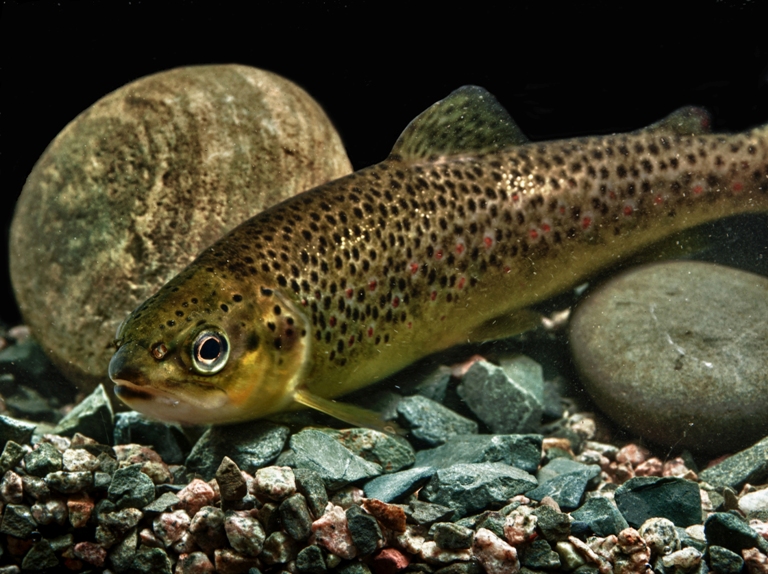Potential impacts of GM fish interbreeding with related species
A new paper by researchers at Memorial University of Newfoundland, Canada, illuminates an over-looked avenue for ecological impacts should genetically modified (GM) animals unintentionally escape containment.
The paper, titled Hybridization Between Genetically Modified Atlantic Salmon and Wild Brown Trout Reveals Novel Ecological Interactions, was released at midnight on Wednesday in the Royal Society journal Proceedings of the Royal Society B.
The lead author is former Memorial undergraduate student Krista Oke, who did her honours thesis with Dr. Ian Fleming of the Department of Ocean Sciences. In addition to Dr. Fleming, the other co-authors are Dr. Peter Westley and Dr. Darek Moreau, former PhD students of the university.
“Interest in the use of GM animals for human consumption is mounting, and currently the U.S. Food and Drug Administration is evaluating the environmental risk of GM salmon produced by AquaBounty Technologies for aquaculture production,” said Dr. Westley.
“Substantial work has shown the risks of GM salmon interacting with members of their own species, but what has not been done before, and what our paper sought to do, was to investigate what would happen if a GM salmon should escape and interbreed with closely related brown trout.”
The researchers successfully interbred GM salmon with wild brown trout, two naturally hybridizing species, and saw the offspring indeed carried the modified gene.
“The GM hybrids grew really fast, faster than non-GM salmon and they survived well enough to out-compete and reduce the growth of non-GM salmon in semi-natural conditions in the lab,” said Dr. Westley. “These results emphasized that potential interbreeding of a GM animal and a closely related species needs to be considered in risk assessments.”
Dr. Westley adds that the results provide empirical evidence of the successful first steps towards incorporation of foreign genes into the genomes of new species.
“Although we think it's highly unlikely, if GM hybrids are then able to breed with a brown trout, the foreign growth gene could potentially jump between species via hybridization,” he said. “Broadly speaking, our study shows that hybridization between species is a potential route for new environmental impacts and novel avenues for interactions between GM animals and wild counterparts, though even the likelihood of significant ecological effects due to hybridization will be low given rates of hybridization in nature. Things may be increased slightly through escapes of domesticated farmed fish.
“Ultimately, we agree with AquaBounty’s proposed plan and efforts to ensure containment and sterility so GM salmon can't interbreed – not only with their own species, but other species as well. Sterile, all-female populations in land-based facilities with redundant biological and physical containment would considerably reduce the likelihood of such environmental risk.”
